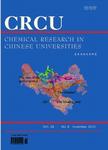Phytoestrogens Inhibiting Androgen Receptor Signal and Prostate Cancer Cell Proliferation
Phytoestrogens Inhibiting Androgen Receptor Signal and Prostate Cancer Cell Proliferation作者机构:Key Laboratory of Molecular Epigenetics Ministry of Education Institute of Genetics and Cytology Northeast Normal University Changchun 130024 P. R. China Dental Hospital Jilin University Changchun 130021 P. R. China Department of Public Health Tohoku University Sendai 980-8576 Japan Department of Nutritional Sciences Morioka University Morioka 020-0183 Japan
出 版 物:《Chemical Research in Chinese Universities》 (高等学校化学研究(英文版))
年 卷 期:2013年第29卷第5期
页 面:911-916页
核心收录:
学科分类:0710[理学-生物学] 071001[理学-植物学] 071010[理学-生物化学与分子生物学] 081704[工学-应用化学] 07[理学] 08[工学] 0817[工学-化学工程与技术]
基 金:Supported by the Project of the Ministry of Science and Technology of China the Project of the Ministry of Education of China the Project of the Jilin Provincial Science & Technology Department the Project of the Changchun Science & Technology Department
主 题:Androgen receptor Phytoestrogen Prostate specific antigen(PSA) Prostate cancer
摘 要:The androgen receptor(AR) signaling activated by dihydrotestosterone(DHT) plays critical roles in pros- tate cancer development and progression. Phytoestrogens, which are diphenolic compounds with estrogen and an- ti-estrogen effects, can bind to estrogen receptors. However, their function on AR signaling has not been fully eluci- dated. In this study, dual-luciferase reporter assay, immunobloting, docking system test, MTT assay, immunofluores- cence and chromatin immunoprecipitation(ChlP) assays were employed to examine the potential effects of three phytoestrogens(genistein, daidzein, flavone) on DHT-activated prostate specific antigen(PSA) activation, cell proli- feration and AR transactivation in lymph node carcinoma of prostate(LNCaP) cells. Phytoestrogens were detected to down-regulate DHT-activated AR-mediated PSA promoter transactivation by dual-luciferase reporter system. Fur- thermore, three phytoestrogens, especially genistein, were demonstrated to significantly decrease AR-activated PSA protein expression by Western blotting analysis. MTT experiment proves that phytoestrogens, especially genistein, remarkably inhibits the DHT-indueed cell proliferation in LNCaP cells. To provide reasonable explanations for expe- rimental phenomena mentioned above, we did docking system test and detected phytoestrogens to share the same AR-binding site with DHT. To further prove the competition between phytoestrogen and DHT on AR binding, we examined the effects of phytoestrogens on DHT-activated AR nuclear translocation and immunofluorescence analysis which confirms that phytoestrogens, especially genistein, inhibit DHT-activated androgen receptor nuclear transloca- tion. Results from ChIP show that phytoestrogens down-regulate DHT-induces AR binding to the androgen response elements(AREs, including AREI, AREII, and AREIII) in PSA promoter. Genistein remarkably down-regulates AR, binding to the AREI located in -250---39 bp and AREIII in --4170---3978 bp in the presence o



